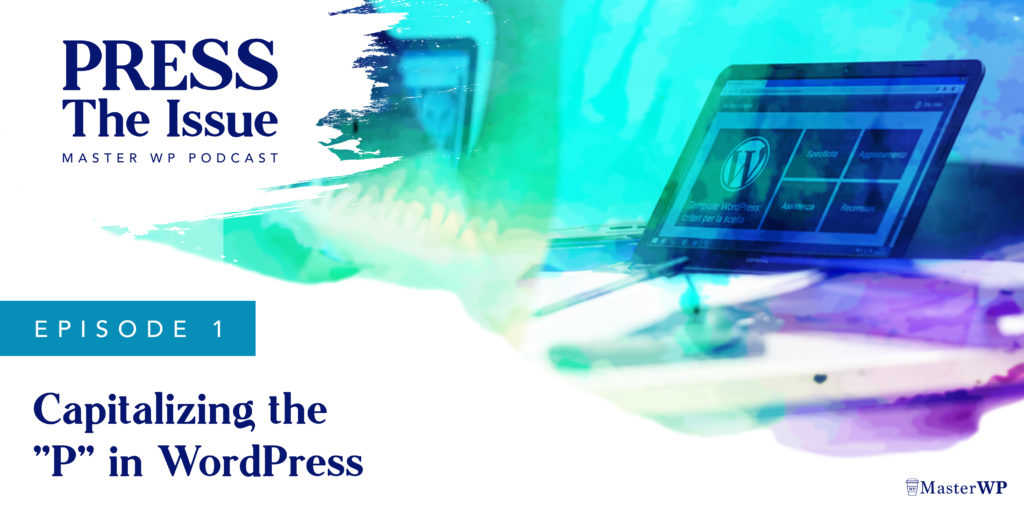It’s WP Career Summit week, and a recent Post Status guest post purports to teach aspiring employees “What Agencies are Looking for in your Code.” Among a number of dubious hiring recommendations, the author calls out the oddest pet peeve of the WordPress community – spelling the name of the software with an uppercase P. He says:
“Whoever doesn’t write uppercase P in the WordPress world doesn’t have a clue. It is the one thing [for which] you could be shunned, and there’s not much you could say in your defense.”
There’s not much you could say in your defense, huh? Challenge accepted.
Buckle your seat belts, because it’s time for us to take down the cult of the Uppercase P, once and for all.
The Uppercase P has no place in the English language
There is not a single word in the English language (or any other language using the Latin alphabet that I am aware of) that uses a capital letter in the middle of the word. English is full of compound words, none of which capitalize the first letter of the second word. Perhaps I’m just a special SnowFlake, but I find arbitrary capitalization jarring and even a little snooty – pretty much the only place you see this type of capitalization is in the names of web companies created in the early 2000s. It’s dated, out of style and goes against everything you learn in English grammar – and yet, apparently there are major WordPress companies who believe that “no uppercase ‘P’ means you don’t care about the WordPress community,” as the author of the job advice suggests.
Even within the realm of tech companies, the capital letter is used seemingly at random. Why TechCrunch but not FaceBook? Why YouTube but not FireFox? Even foreign tech companies are confused – from China, where the native alphabet does not have uppercase and lowercase letters at all, we have TikTok (capitalized) but also Tencent (lowercase).
By embracing the capital P with such bizarre ferocity, WordPress has dated itself and taken a highly opinionated stance on a largely nonsensical issue. While I understand the need for the WordPress Foundation to carefully protect its trademark, using the uppercase P as a secret “community handshake” seems like a great way to unnecessarily reduce your hiring pool and cut out qualified candidates for foolish reasons.
The Uppercase P has zero relevance to your skill as a coder
When we hire developers, we look for people with exciting potential who we can train on the details of agency life and building handcrafted WordPress sites. We specifically do not use arbitrary quizzes or litmus tests, because they unnecessarily eliminate highly qualified people for reasons that usually have nothing to do with how well they’d perform in their job. Likewise, testing to see if someone is in the “in group” might make a hiring manager feel more confident, but in my experience it rarely correlates with actual job performance. The author acknowledges that “The ‘P’ doesn’t make you code faster or slower,” but then doubles down on his assertion that somehow capitalization is a valid consideration when interviewing a person for a job:
“No uppercase ‘P’ means you don’t care about the WordPress community. That makes sense if you’re coming from outside the WordPress world. But when you’re applying for a role in an agency that is in that world and cares about the community, already being part of it gives you an edge over everyone who isn’t.
“I would argue the ‘P’ doesn’t define the quality of the programmer, but 90% of the time, it’s a good measure. It isn’t absolute.”
This is such an absurd and petty thing to test for during the hiring process that it almost borders on hiring discrimination. Are we really suggesting that we are such perfectionists that we would eliminate a candidate on the mistaken belief that an uncapitalized letter (in the middle of a word, where capital letters don’t belong!) can predict someone’s coding skills with 90 percent accuracy? If that’s truly how we run our businesses, who would want to work for us?
Favoring ‘insiders’ hurts everyone
I have an important news flash for those of us hiring WordPress developers. We have an industry-wide diversity problem, and giving “an edge” to candidates who are already in your secret society and subscribing to your paywalled chat rooms is not helping. We should be doing the exact opposite of what the author suggests and welcoming newcomers who might have great coding skills but accidentally (and correctly!) assume that the fifth letter in a word should be lowercase.
The WordPress community is working hard to be more inclusive, even removing relatively innocuous “inside jokes” from the codebase, such as a variable named $tinkle, to make things clearer and more welcoming for new contributors. (Full disclosure: I have a cat named Mr. Tinkles, so this change struck close to my heart.) And yet, we embrace a core function named capital_P_dangit() that, against all reason and sanity, applies a silent front-end filter to nearly every word on every WordPress website to capitalize the letter P every time someone types the software’s name. (What other software changes your text without telling you?!) This is not necessary for trademark protection, it’s just a bizarre vanity that’s become so ingrained in the community that now we’re apparently throwing out resumés that don’t conform to our preferences for random capitalization.
I don’t suggest that WordPress officially change its name – but I do think it is time for us to accept that P-lowercasers can be part of our community too. Random capitalization may have been cool in 2003, but the world has changed – and it’s time for our community to catch up.



